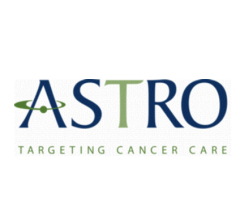The American Society for Radiation Oncology (ASTRO) has selected seven leading physician-researchers to receive a total of $675,000 in awards and grants to advance radiation oncology research. Together, the seven funding grants, including ASTRO Junior Faculty Career Research Training Award, the ASTRO Residents/Fellows in Radiation Oncology Research Seed Award and the ASTRO/Radiation Oncology Institute (ROI) Comparative Effectiveness Research Award, will support studies in radiation and cancer biology, radiation physics, translational research, outcomes/health services research and comparative effectiveness research within radiation oncology. Recipients will be recognized at ASTRO’s 57th Annual Meeting, October 18-21, 2015, at the Henry B. González Convention Center in San Antonio, Texas.
“ASTRO proudly supports these seven exceptional researchers in their efforts to help us continue to advance radiation oncology care,” said ASTRO Chair Bruce G. Haffty, M.D., FASTRO. “ASTRO is committed to engaging and funding recent medical graduates in their critical research efforts that will strengthen their radiation oncology careers and the specialty as a whole.”
All awardees must submit a report to ASTRO at the midterm and the conclusion of their research, and they are strongly encouraged to submit their study as an abstract in a subsequent ASTRO Annual Meeting. The grant winners are selected by ASTRO’s Research Grants Evaluation Committee within the Science Council and approved by the ASTRO Board of Directors.
The ASTRO Junior Faculty Career Research Training Award provides $100,000 annually for two years to two winners ($200,000 to each recipient) to support the careers of promising junior faculty by offering them the opportunity for dedicated time to work on research projects in radiation oncology, biology, physics or outcomes/health services. Recipients are board-eligible physicians, physicists in radiation oncology or radiobiologists within the first three years of their junior faculty appointment.
The two 2015 ASTRO Junior Faculty Career Research Training Award recipients are:
• Kent William Mouw, M.D., Ph.D., of the Dana-Farber Cancer Institute in Boston. Mouw will be investigating the genomic determinants of chemoradiotherapy responses in anal carcinoma. His focus is to map the genetic landscape of a large number of anal tumors to understand their biology, which could help identify appropriate therapeutic targets.
• Robert Mutter, M.D., of the Mayo Clinic in Rochester, Minn. Mutter will study comprehensively characterized chemoresistant triple negative breast cancer xenograft models established from patients with high-risk breast cancer in a preoperative chemotherapy clinical trial. He will investigate if chemoresistance predicts radioresistance and test new DNA repair strategies aimed at overcoming resistance.
The ASTRO Residents/Fellows in Radiation Oncology Research Seed Grant awards $25,000 for one-year projects to residents and fellows who are planning to pursue careers focusing on basic science or clinical research in radiation oncology services.
The three 2015 grant recipients are:
• Ariel Marciscano, M.D., of Johns Hopkins University in Baltimore. Marciscano will be researching Immuno-PET as a non-invasive biomarker to characterize the tumor microenvironment and the implications for combining stereotactic radiotherapy with immune checkpoint blockades.
• David Mayhew, M.D., Ph.D., of the University of Alabama in Birmingham, Ala. Mayhew will evaluate the role of a non canonical form of mRNA translation, termed internal ribosome entry site (IRES) translation, in the cellular stress response of tumors and its subsequent impact on treatment resistance in multiple breast cancer cell lines in vitro, as well as tumor xenograft in vivo.
• Jennifer Shah, M.D., of Stanford University in Stanford, Calif. Shah will investigate the feasibility of performing serial perfusion CT scans in patients undergoing lung tumor stereotactic ablation body radiation therapy (SABR) with the goal of characterizing the post-SABR vascular changes and how they correlate to tumor response.
The ASTRO/ROI Comparative Effectiveness Research Award provides $50,000 annually for two years to two researchers ($100,000 to each recipient) who will conduct comparative effectiveness research examining radiation oncology treatment. Awardees are board-certified or board-eligible physicians in radiation oncology at the time the award begins and are focused on academic radiation oncology. The two 2015 recipients are:
• Timothy Zagar, M.D., of the University of North Carolina in Chapel Hill, N.C. Zagar will be researching the comparative effectiveness of endocrine therapy and radiation therapy regimens for elderly women (>70 years of age) with early stage, estrogen receptor-positive breast cancer.
• Mark Mishra, M.D., of the University of Maryland Medical Center in Baltimore. Mishra will compare patient reported outcomes to determine if the use of IMRT compared to 3-D CRT can result in a reduction in patient-relevant side effects after prostate irradiation.
For more information: www.astro.org/grants


 February 04, 2026
February 04, 2026 









